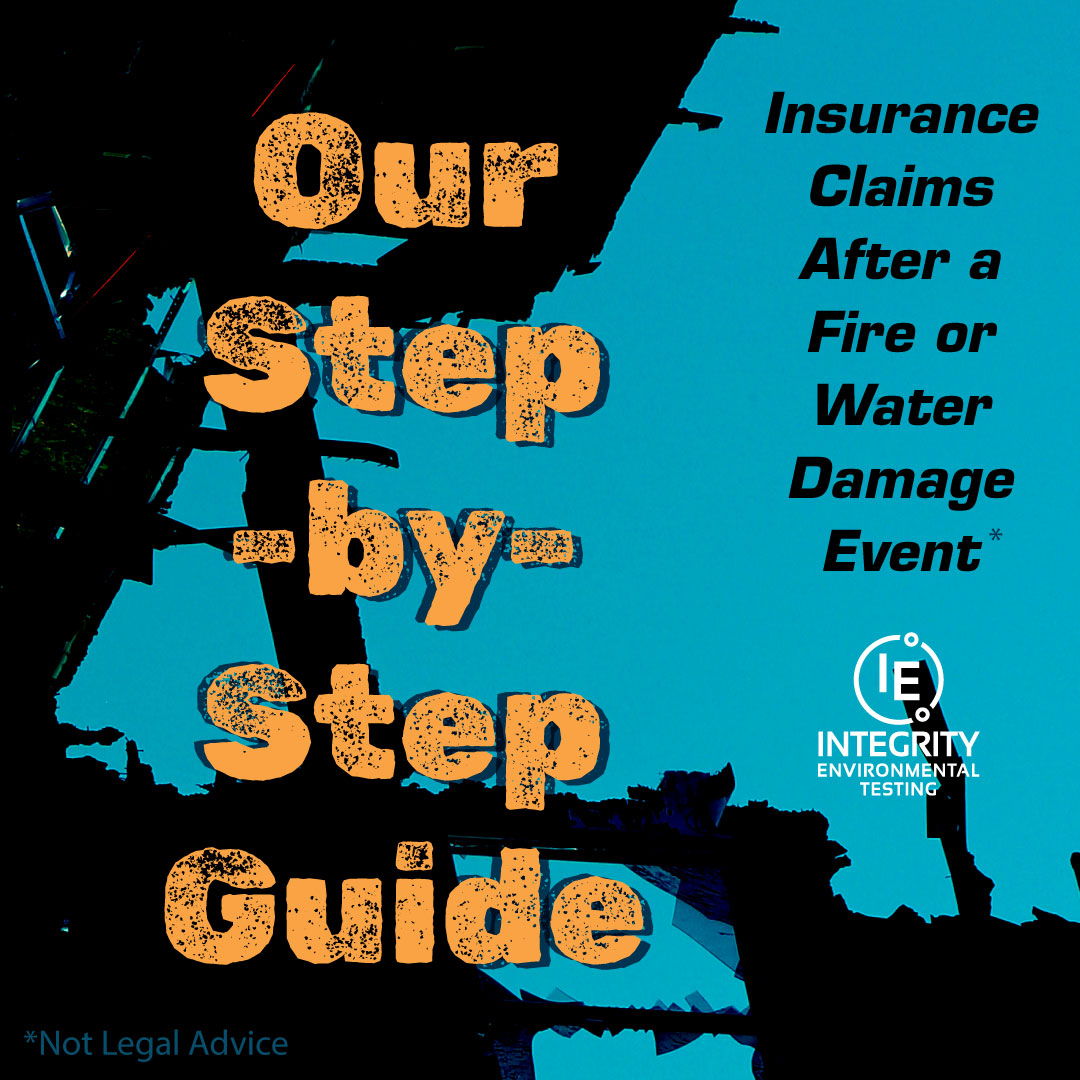Experiencing a fire or flood in your home can be devastating, but knowing how to navigate the insurance claim process afterward is crucial for a full recovery. In Colorado, homeowners have specific rights and procedures when filing claims with their insurance companies. Understanding this process can help streamline the claims process and ensure fair treatment.
Step-by-Step Guide for Filing a Property Insurance Claim after a Fire or Flood
- Document the Damage from your Fire or Flood Emergency.
- Take extensive photos and videos of all damage caused by the fire or water event. Capture the extent of damage from multiple angles to provide compelling evidence.
- Create a detailed inventory listing each damaged item, including its condition, make/model, age, and estimated replacement cost. Keep receipts if available.
- After a Fire or Flood – Test for Occupant & Worker Safety.
- Asbestos, lead, mold and other contaminants (like soot and bacteria) can be present. Air and surface testing is imperative to measure and prove exactly how much contamination you are dealing with.
- Any of these contaminants could mean further regulations and environmentally safe clean up processes, but it always starts with testing.
- Testing documents the true scope of these contaminants so that proper remediation is possible, and compels companies to comply.
- Secure the Property Against Further Damage.
- Hire professionals for water damage restoration or fire restoration to prevent further damage to the property. These highly trained folks are certified and informed on best practices for your safety.
- Do not hire a contractor who also tests for asbestos, mold, or other contaminants. There is a clear conflict-of-interest in determining how much work needs to be done and getting paid to do that work.
- Board up windows, doors, and tarp the roof if necessary to stabilize the home and protect from further damage.
- Keep records of all expenses incurred for temporary protective measures, as these may be covered by your insurance policy.
- Find Temporary Housing.
- If your home is uninhabitable due to the fire or water damage or subsequent contamination, your insurance policy likely covers additional living expenses (ALE). Document all expenses for hotels, food, and essentials. Keep receipts.
- Request an ALE advance from your insurer or keep records for reimbursement as part of the claim.
- File the Claim Promptly.
- Contact your insurance company immediately to initiate the claims process. Insurers must inspect the damage within a reasonable timeframe, typically within 15 days in Colorado.
- Provide detailed information about the date, type of loss, location, injuries, and any police or fire reports related to the incident.
- Work with the Insurance Adjuster.
- The insurance company’s adjuster will assess the damage and provide an estimate for covered repairs. You can and should also obtain estimates from your own contractors to compare. They cannot force you to go through their own contractor, this is the law.
- Document all communication with the insurance company, dates, people you spoke with and how they informed you, and keep original paperwork organized for reference.
- Understand Your Rights:
- Insurers must accept or deny the claim with a written explanation within a reasonable time frame in Colorado.
- You have the right to choose any restoration company for fire or water damage restoration, not just the insurer’s recommendation. Again, this is the law.
- Consider hiring a public adjuster if you feel the settlement offer is too low or if you encounter difficulties during the claims process.
Filing an insurance claim for fire or water home restoration in Colorado requires thorough documentation, air and surface testing for safety, prompt action, and understanding of your rights as a homeowner. Maybe this article helped you feel more equipped to navigate the claims process effectively and ensure your own fair treatment from your insurance company. Let us know in the comments.
You are not alone in this: We’re here to help document your claim. Give us a call for a free consultation or to schedule air and surface testing. Our testing is typically covered by the property insurance. You just don’t know what you are dealing with unless you test.
*The content provided here is intended for general informational purposes only and should not be construed as legal advice. Your individual circumstances and policies will vary, and seeking professional legal counsel can ensure that you receive guidance tailored to your specific situation.

